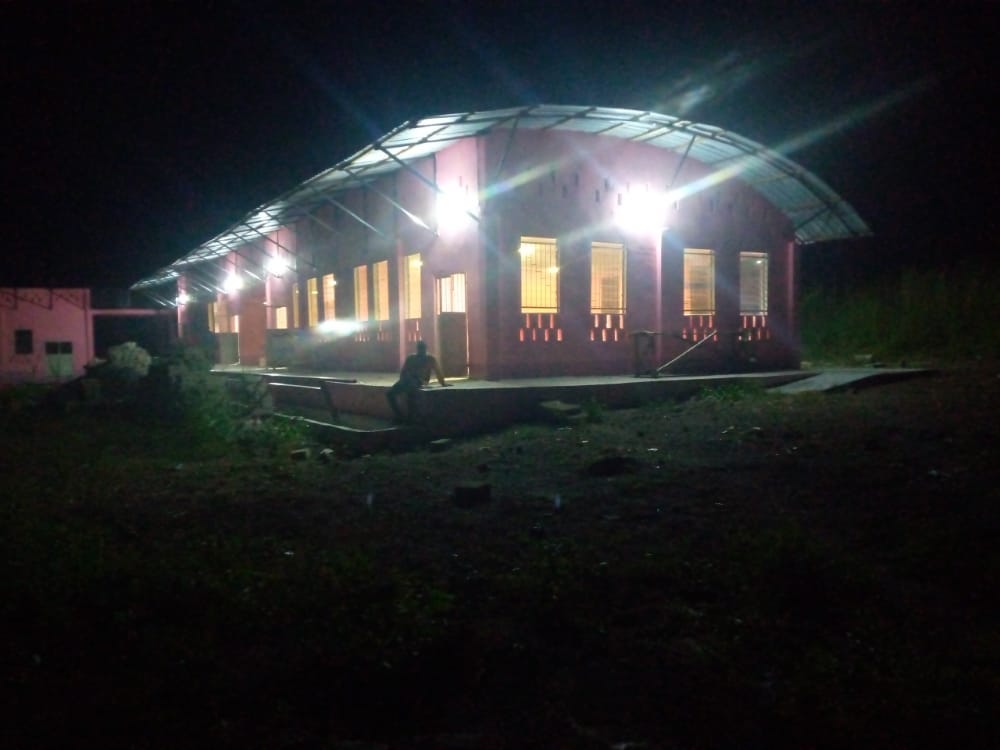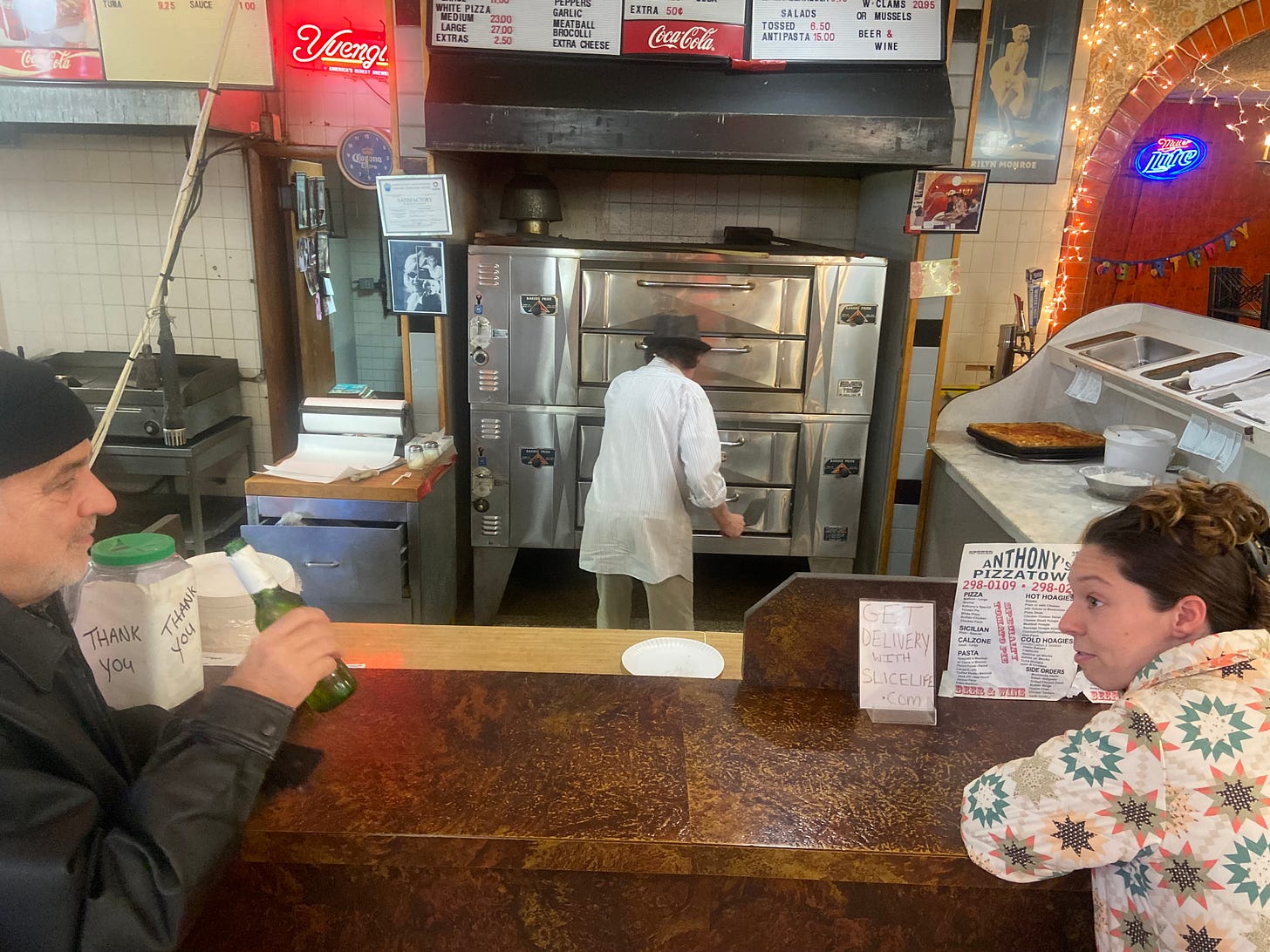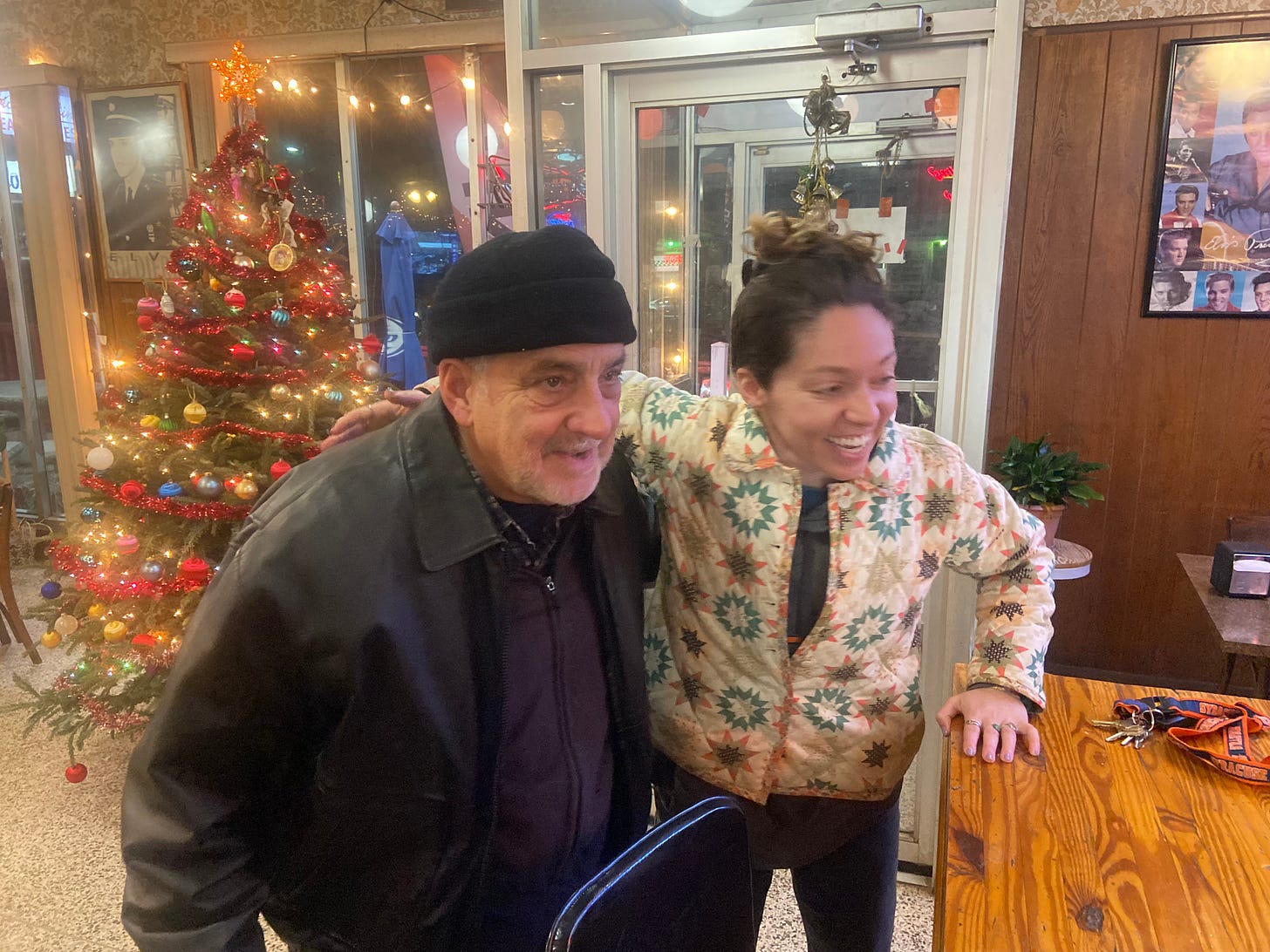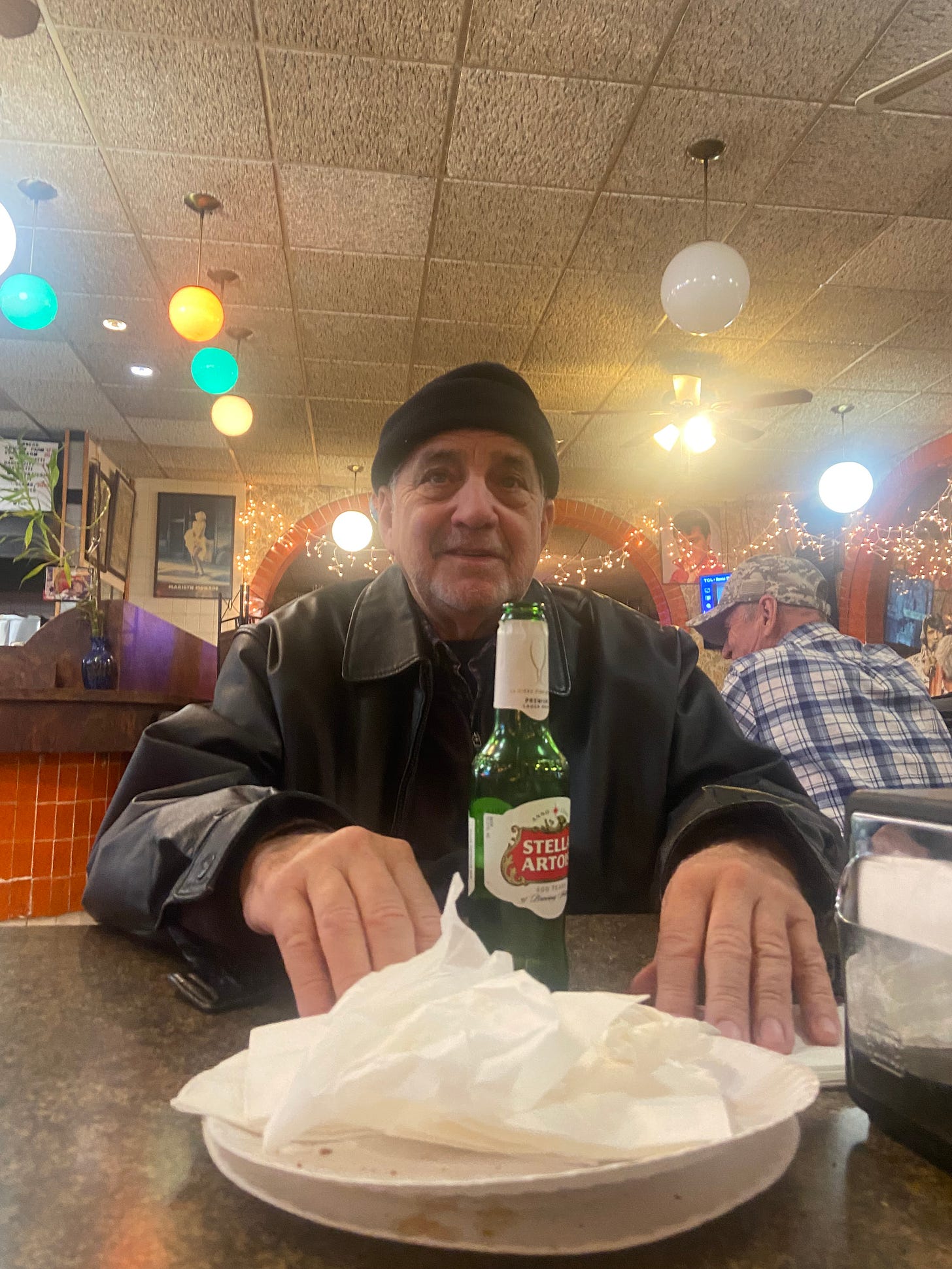Hi friends,
Our neighbor, Mark Grashow, has lived on the same Brooklyn street since the 1970s. He just flew to Sierra Leone (West Africa) to open a learning center he funded. There’s no electricity in the tiny village of Masiaka, but his learning center is “one star in a sea of darkness.” A library opens in the next two months, and the crafts center by summer. It’s built for residents in honor of Mark’s late wife, Sheri.
“Imagine the importance of this Centre to the entire community,” Mark wrote in an email to neighbors. “In the years to come, our Centre will become the heart of Central Sierra Leone. People will be drawn here to read, to do research, to learn a trade, to dance, to sing, to tell stories and to watch movies. The Centre was designed by MIT students. Thanks for all your support.”
Mark’s inspiration for the learning center comes from his 34 years of teaching math in New York City. He’d see a dumpster behind the school, often full of discarded math, science, and library books, most in good condition. It bothered him. In 2003, he and his wife, Sheri, visited Africa for a wedding, then traveled to Zimbabwe to visit rural schools. But they had no textbooks, library books, school supplies, or sports equipment.
They sprung into action. When Mark and Sheri returned to New York, they bought a 40-foot container and began filling it. They founded the U.S. – Africa Children’s Fellowship, which collects unwanted textbooks, library books, and sports equipment from schools in the greater New York area. They partnered 35 American schools with 35 Zimbabwean schools. The program has grown to support the education of more than 160,000 children in 320 schools in five African countries. They’ve shipped 28 40-foot containers to Africa, and each container holds 1,500 boxes of donations.
Standardized test results have soared. In one school, the pass rate increased from 0% to 35%. In another, the pass rate jumped from 15% to 80%. Students can take books home from libraries for the first time. “People at least now have a chance to be what they want to be,” Mark has said.
As he was turning 70, he added:
“It is harder to tie my shoes and sleeping through the night is a faint memory. Most of my friends are climbing the same ladder. But truth be told, we remain enormously powerful. All that is needed is to gather together and find something to believe in. We may not be able to climb mountains, but we can still move a few. You don’t need muscles to roll up your sleeves.”
Mark’s efforts are admirable and reminiscent of Fred Rogers’ sentiment about serving others: “Anything that we can do to help foster the intellect and spirit and emotional growth of our fellow human beings, that is our job. Those of us who have this particular vision must continue against all odds. Life is for service.”
Somehow, I’ll turn 26 soon, which will make me closer to age 50 than zero. I frequently think about how the past several years have flown by, a sentiment many around me have. The weeks seem to blur together. Sometimes, anxiety settles in because time is regarded as our most valuable asset: Once it’s gone, it’s gone forever.
Then I saw an excellent piece on growing older by author Kristi Nelson, the executive director of A Network of Grateful Living. As she turned 58 in 2017, she noted that “growing a bit older every day seems to be the only way to continue to be alive…Having a birthday offers me the welcome reminder that it is nothing short of a total miracle to be alive yet another year.”
It’s a nice reframe: Rather than fret another day, month, or year going by, we can realize that aging is better than the alternative. “It feels appropriate to use the term ‘miraculous’ to describe making it from one entire year to the next,” Kristie writes.
Neil deGrasse Tyson, an American astrophysicist, also addressed this miracle of living in his new book, 'Starry Messenger: Cosmic Perspectives on Civilization,’ where he discusses why people want to live forever and what would happen if we did. Wise words. My takeaways:
The knowledge that I am going to die creates the focus that I bring to being alive. The urgency of accomplishment. The need to express love — now, not later. If we live forever, why even get out of bed in the morning? Because we always have tomorrow. That's not the type of life I want to lead.
The total number of people who have ever been born is about 100 billion. Yet the genetic code that generates viable versions of us is capable of at least 10 to the 30th. That astronomically colossal number is a 1 followed by 30 zeroes, providing a million, trillion, trillion possible souls.
Run through them all, and eventually, we end up with you again, or at least your twin. But so far, our branch of the tree of life has produced no more than 0.00000000000000001% of all possible humans. That means most people who could ever exist will never even be conceived.
Each of us is unique to the universe for now and forever.
Being alive is the time to celebrate being alive every waking moment. Why not strive to make the world a better place today than it was yesterday? Simply for the privilege of having lived in it.
We fear death because we are born knowing only life. Yet we don’t fear having never been born. It’s undoubtedly better to be alive than never to exist.
Fear not death but a life in which you could have accomplished more and touched more people.
Life is better than death. Life is better than having never been born. Each of us is alive against astonishing odds. We won the lottery!
We also get to smell the flowers. We get to bask in divine sunsets and sunrises and gaze into the night sky. We get to live and ultimately die in this glorious universe.
Photos of the week: Ally and I met up with my awesome uncle Mitchell in New Jersey
Parting quote: “A healthy man wants a thousand things, a sick man only wants one.” ― Confucius
Celebrate your gifts,
Matthew







Love the parting quote.